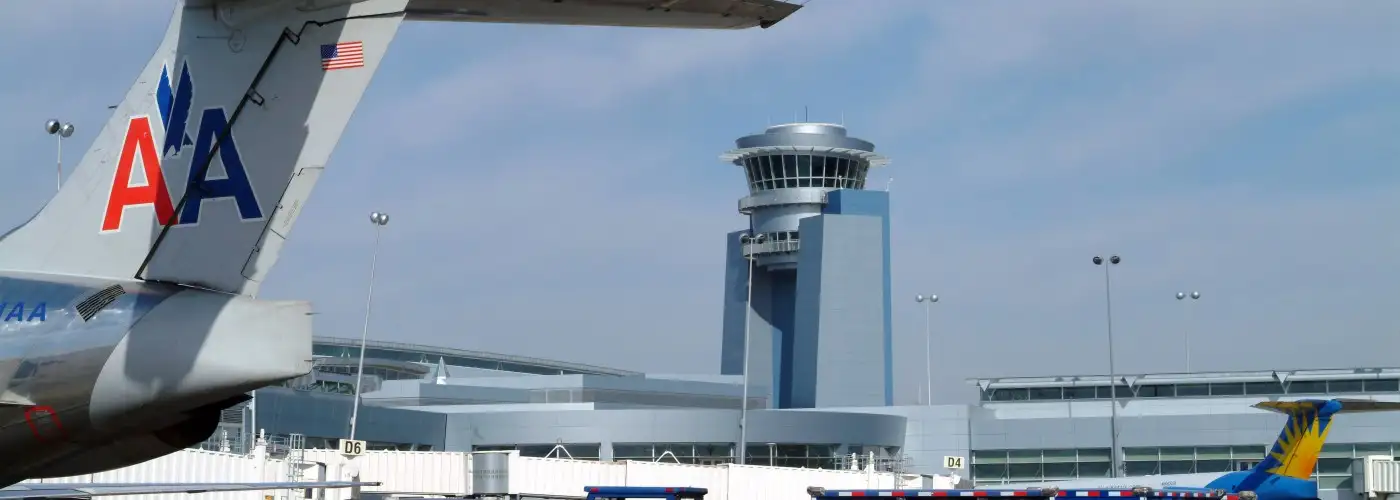Today, American, British Airways, and Iberia filed for antitrust immunity with regulatory agencies in the U.S. and E.U. If granted, anti-trust immunity will allow the three airlines to cooperatively operate flights between the U.S. and the E.U., jointly deciding routes, schedules, and ticket prices.
According to the joint news release: “This relationship will benefit consumers by providing easy, seamless and convenient travel to more global destinations with better connections, improved flight schedules, and enhanced frequent flyer benefits. It will improve customer choice by enabling the oneworld global alliance, of which American, British Airways, and Iberia are key members, to compete more effectively around the world with other global alliances.” The relationship stops short of an outright merger, which is currently impossible under U.S. law.
We’ve been here before.
American and British Airways first attempted to secure antitrust immunity in 1996, when Northwest partnered with KLM, and United did the same with Lufthansa. They tried again in 2002. Both times, regulators expressed concerns that a tie-up would give the two airlines too much pricing power in the all-important U.S.-London market.
Two things have changed, which significantly increase the deal’s chance of success this time around. First, the airline industry’s current plight has given legitimacy to the idea that the airlines must consolidate to survive. And second, the [% 2335299 | | open-skies agreement %] between the U.S. and the E.U. took effect in March, allowing airlines in both regions to fly anywhere they choose (landing slots permitting).
So far, the loudest voice raised against the proposed alliance is that of Sir Richard Branson, president of Virgin Atlantic, who is quoted in a news release as follows: “Airlines everywhere are struggling with the current price of oil, but the solution to their problems should not lie in an anti-competitive agreement which will inevitably lead to less competition and higher fares.”
Branson points out that combining American and British Airways’ U.S.-Heathrow operations would give the pair dominance in six key markets: New York/JFK (63 percent share), Chicago (66 percent), Boston (82 percent), Miami (72 percent), Los Angeles (49 percent), and Dallas/Fort Worth (100 percent).
Obviously, Branson has his own self-interest here. His airline competes against both American and British Airways, and he’s obviously better off fighting them separately than as a unified force.
Still, Branson’s argument boils down to a truism of economics: Less competition leads to higher prices. Accepting that outcome, the question then becomes whether the benefits promised by the three carriers will justify those higher ticket prices.
The airlines concerned already co-participate in the oneworld alliance, linking frequent flyer programs, coordinating schedules, sharing airport terminals, etc. What additional consumer benefits can they hope to deliver if they are granted anti-trust immunity?
Giving these carriers the right to set prices is likely to result in higher prices but no meaningful improvement in the lot of affected travelers. I’m inclined to second Sir Richard’s “No” vote.
We hand-pick everything we recommend and select items through testing and reviews. Some products are sent to us free of charge with no incentive to offer a favorable review. We offer our unbiased opinions and do not accept compensation to review products. All items are in stock and prices are accurate at the time of publication. If you buy something through our links, we may earn a commission.
Related
Top Fares From
Today's Top Travel Deals
Brought to you by ShermansTravel
Kenya: 14-Night Tour, Incl. Tanzania &...
smarTours
 vacation
$7125+
vacation
$7125+
7-Night Caribbean Round-Trip Cruise From Orlando:...
Norwegian Cruise Line
 cruise
$739+
cruise
$739+
Ohio: Daily Car Rentals from Cincinnati
85OFF.com
 Car Rental
$19+
Car Rental
$19+




